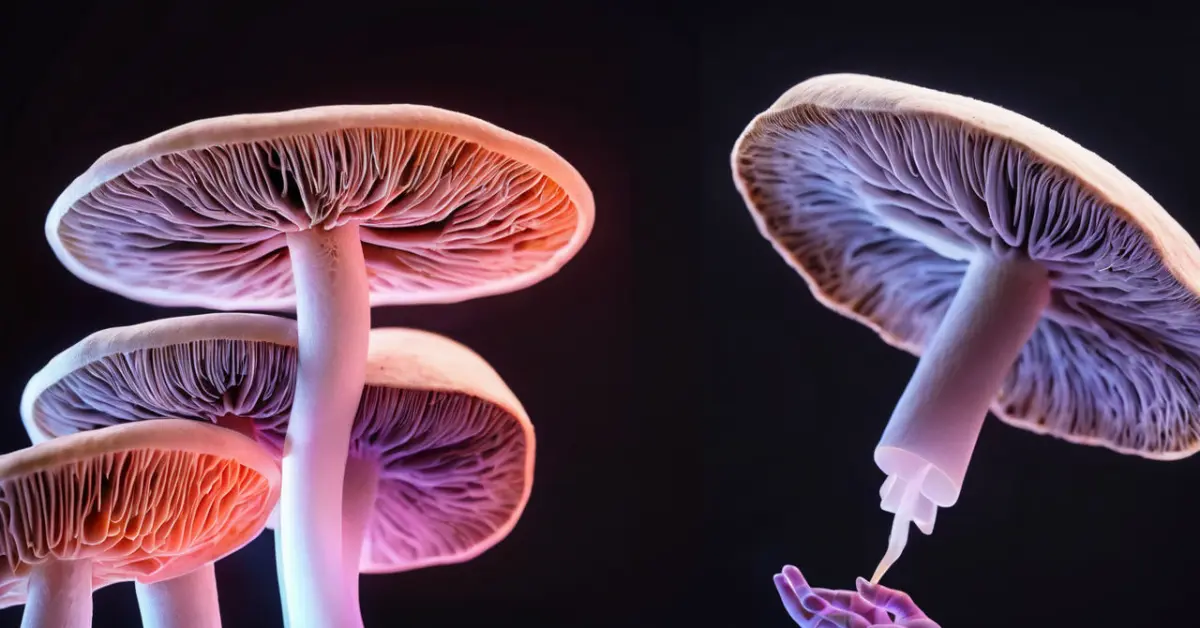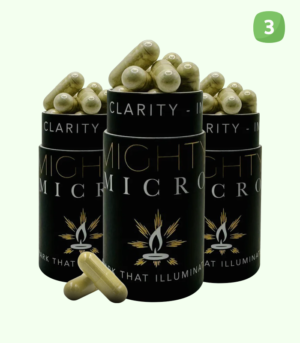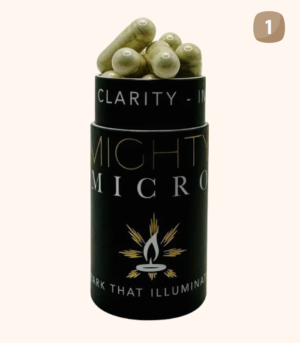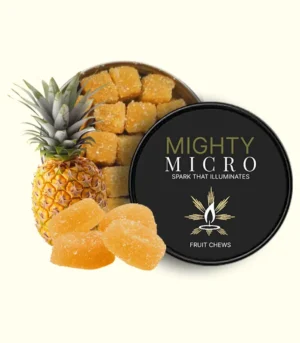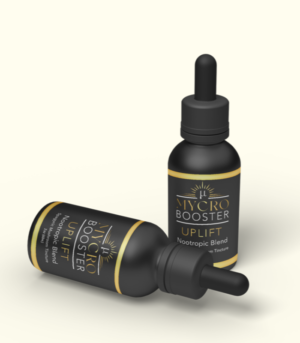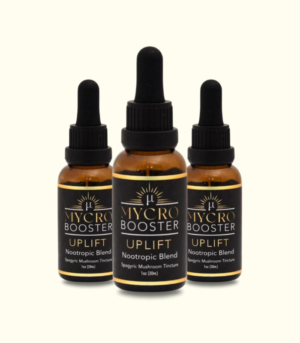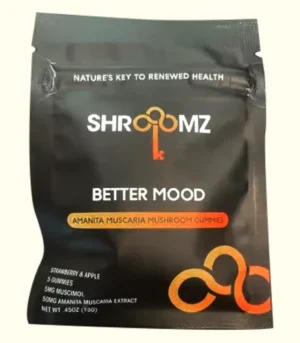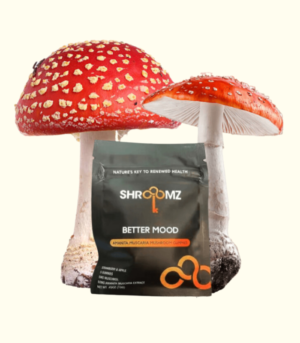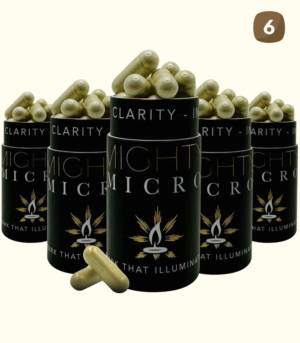Migraines: the relentless torment that shadows even the brightest days. Conventional treatments offer only fleeting respite, leaving sufferers desperate for an alternative. Enter microdosing psilocybin mushrooms – an unconventional avenue garnering attention for its potential to alleviate migraines. In this article, we’ll delve into the world of microdosing mushrooms for migraines, exploring its advantages, the science underpinning it, and the crucial factors to bear in mind.
What Is Microdosing and How Can It Relieve Migraines?
Microdosing, the practice of consuming minuscule, barely perceptible doses of psychedelics, has surged in popularity due to its purported therapeutic effects. Could this practice offer sanctuary to migraine sufferers? With tales of respite circulating, interest is growing around whether microdosing mushrooms holds the key to unshackling oneself from the clutches of migraines.
What Are the Potential Benefits of Microdosing for Migraines?
Microdosing psilocybin mushrooms for migraines offers several potential benefits:
- Reduction in Migraine Frequency and Intensity
Many users report fewer and less severe migraine attacks after microdosing. Psilocybin’s neurochemical effects may contribute to this reduction by influencing pain pathways and brain function.
- Improved Pain Perception
Psilocybin may alter the way the brain processes pain, potentially leading to a shift in pain perception and a reduction in the discomfort associated with migraines. This could result from psilocybin’s impact on neural connectivity and serotonin levels.
These benefits, while promising, are supported mainly by anecdotal evidence and preliminary studies. More research is needed to fully understand the efficacy and safety of microdosing for migraine relief.
What Are the Scientific Theories Behind Microdosing for Migraine Relief?
The scientific intrigue surrounding microdosing’s potential for migraine relief rivals the most complex enigmas. One theory centers on augmented neuroplasticity. Could psilocybin’s influence encourage the brain to forge new connections, circumventing migraine triggers? Another tantalizing theory revolves around serotonin modulation – a neurotransmitter often implicated in migraines. Is psilocybin, in its microdosed form, a quiet conductor that soothes serotonergic tempests?
Buy Magic Mushroom Online
What Should You Consider When Starting Microdosing for Migraines?
Yet, while microdosing presents promise, caution must accompany exploration. Individual responses diverge dramatically, with outcomes varying widely. Legal considerations also loom large, as psilocybin’s status oscillates across regions.
Embarking on the Microdosing Journey: Taking Initial Steps
For those considering microdosing, a deliberate strategy is paramount:
- Seek Guidance: Consult healthcare professionals experienced in both migraines and psychedelic therapies. Their insights can illuminate potential pitfalls and personalized pathways to success.
- Dosing and Timing: Microdosing hinges on subtlety. Commence with a fraction of a full dose – often ranging from 0.1 to 0.5 grams. Healthcare providers can finesse this delicate equation.
What Are the Challenges and Considerations of Microdosing for Migraines?
Microdosing psilocybin mushrooms for migraines presents several challenges and considerations:
- Individual Variability: Responses to microdosing can vary widely among individuals. While some may experience significant relief, others might see minimal or no improvement. Factors such as metabolism, brain chemistry, and underlying health conditions can influence outcomes.
- Legal Status: Psilocybin’s legal status varies by region, which can affect access and legality. In many areas, psilocybin remains a controlled substance, making its use for microdosing legally problematic.
- Lack of Rigorous Research: The scientific evidence supporting the effectiveness of microdosing for migraines is still limited. Most existing studies are small-scale or anecdotal, highlighting the need for more extensive research to validate claims and understand potential risks.
- Potential Side Effects: Microdosing, while generally considered low-risk compared to full doses, can still cause side effects such as anxiety or altered perceptions. Monitoring and adjusting the dose is crucial to minimizing adverse effects.
- Need for Professional Guidance: Consulting healthcare professionals familiar with both migraines and psychedelic therapies is essential. They can provide guidance on dosing, monitor effects, and help manage any potential interactions with other treatments.
What Does the Future Hold for Microdosing Mushrooms for Migraines?
While the realm of microdosing mushrooms for migraines is still embryonic, its potential is luminous. As societal attitudes toward psychedelics evolve, funding surges into research that could demystify this promising therapy.
In Conclusion
Within the labyrinth of migraine management, microdosing mushrooms offers a beacon of hope. With its conceivable power to curtail migraine frequency and intensity, coupled with its capacity to reshape pain perception, this emerging therapy might recalibrate lives. Yet, risks and uncertainties accompany the journey. Professional consultation and legal awareness are prerequisites. As research deepens, microdosing mushrooms for migraines might illuminate a path toward emancipation from migraines’ dominion.
Can Psilocybin Treat Cluster Headache?
Psilocybin may offer relief for cluster headaches, as some studies and anecdotal evidence suggest it can reduce the frequency and severity of attacks. However, more research is needed to establish its effectiveness and safety for treating this condition.
Can psilocybin treat migraine?
Psilocybin may help alleviate migraines, with some studies and anecdotal reports suggesting it can reduce frequency and intensity. More research is needed to confirm its effectiveness and safety.
Does psilocybin cause migraine?
Psilocybin does not typically cause migraines. In some cases, users might experience headaches as a side effect, but this is not common. Most evidence suggests that psilocybin may help reduce migraine frequency and intensity.

